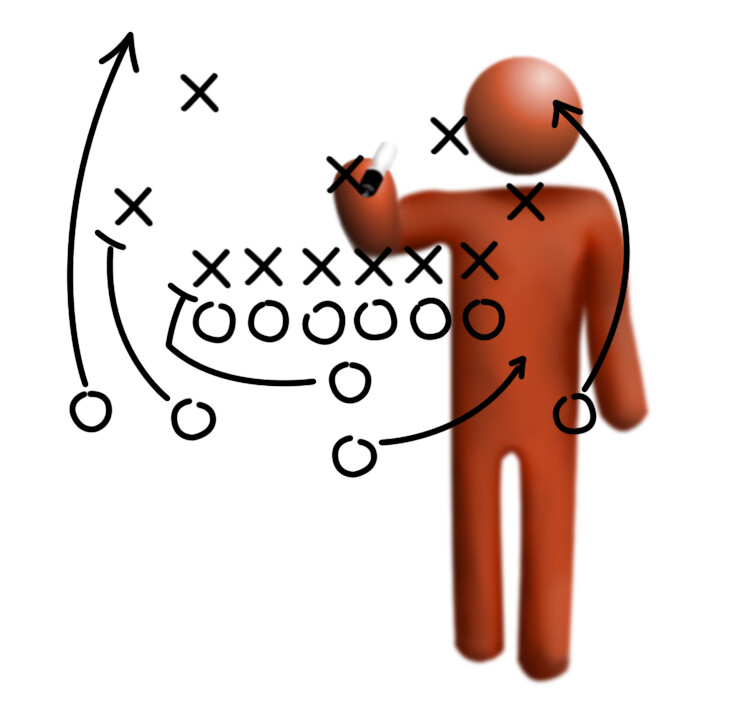 |
| Image: "Coaching" by Shane McGraw Accessed at flickr.com Unaltered / License link |
Unfortunately, I no longer have the proposal paper and cannot rightfully credit the person doing the research. He was looking at a music education pedagogy with similarities to athletic coaching. I don't remember all of the specifics, but I do remember being struck by how well this seemed to adapt to theatre education at the high school.
Then, this evening, I was listening to The Art of Manliness podcast while ironing clothes for the week. This particular episode (#405) was a conversation with a man named Sam Walker who has written a book called The Captain Class about how the captains of some of the most dominant sports teams are often not the best players, celebrity athletes, or known names. I didn't get far enough into the episode to get into the heart of the findings, but generally Walker's book discusses common components of these leaders' styles. That got me thinking about the research topic and how I might apply it to the high school theatre program where I teach.
I would like to take some time this summer to read about coaching psychology and methodology and see how it can be applied to the theatre program as a whole. I see the program defined by both the classroom instruction and the practical application of that work in the school productions and other performance opportunities (competitions, festivals, etc). How can athletic training be brought into both of those areas to improve my instruction and student learning? In what ways are these two environments similar and different? How much practical training is "enough" and how can psychology and education about training be implemented? How can I teach leadership in an arts-based curriculum?
Lots to learn. Looking forward it learning and putting it all to use!
No comments:
Post a Comment